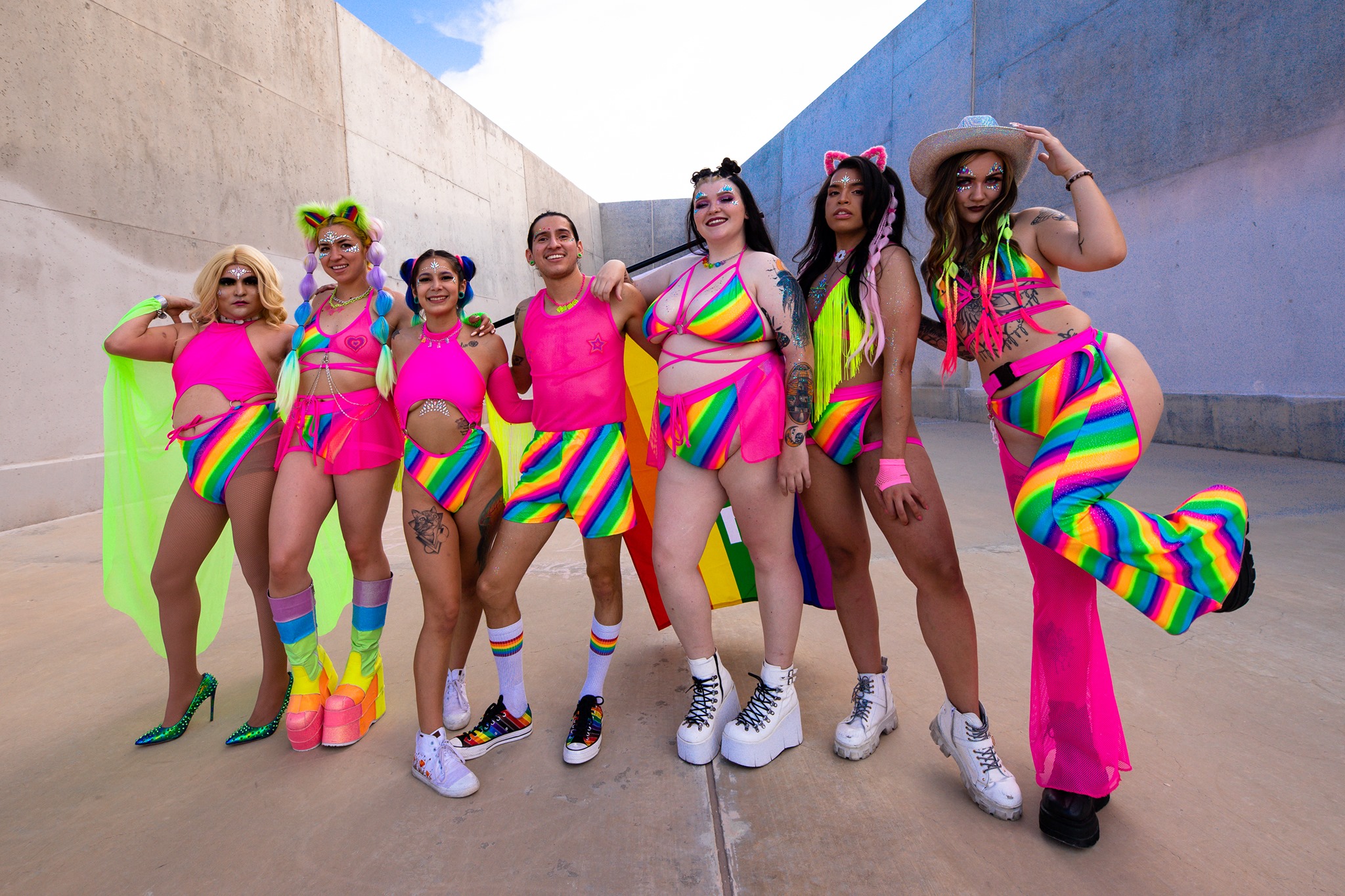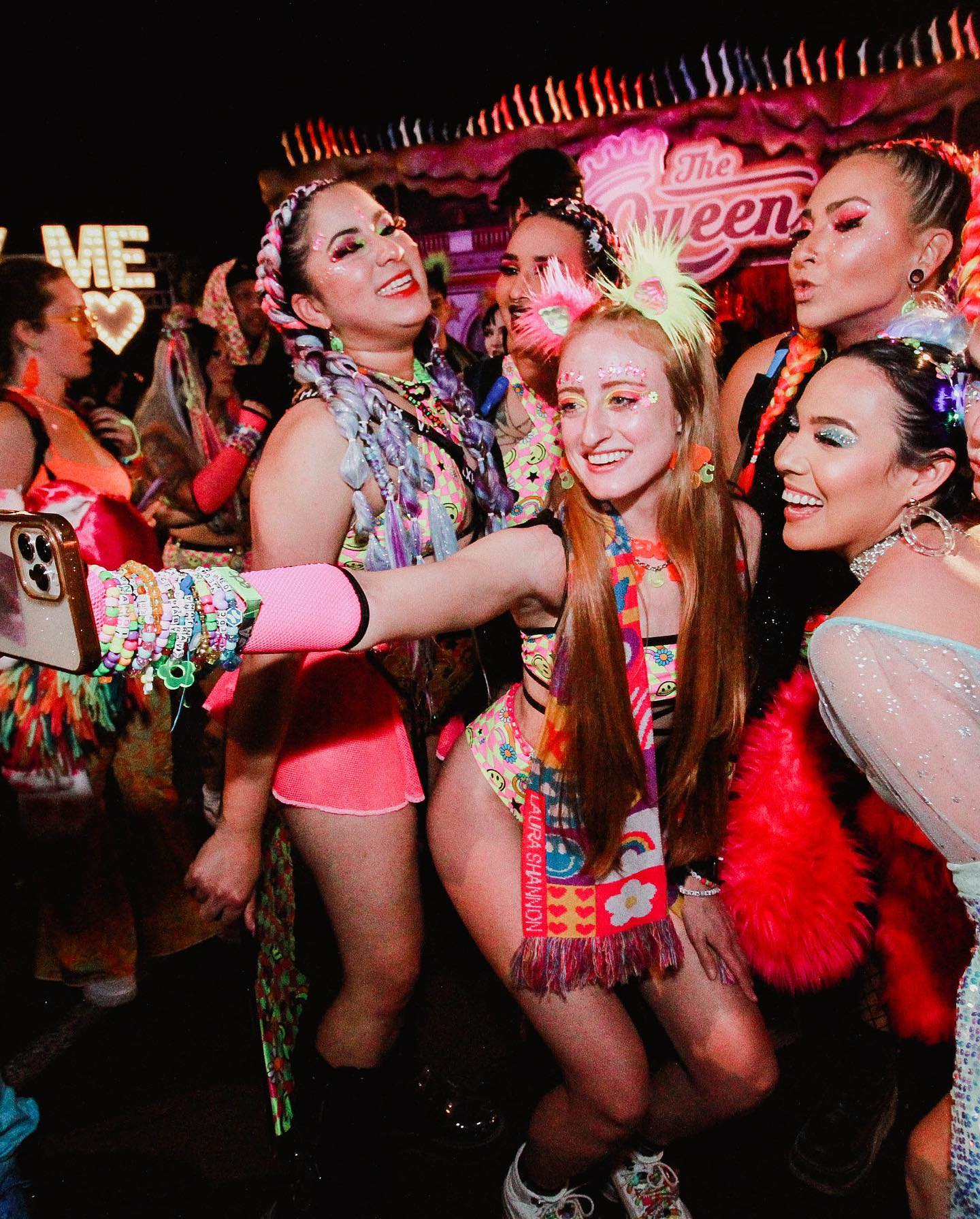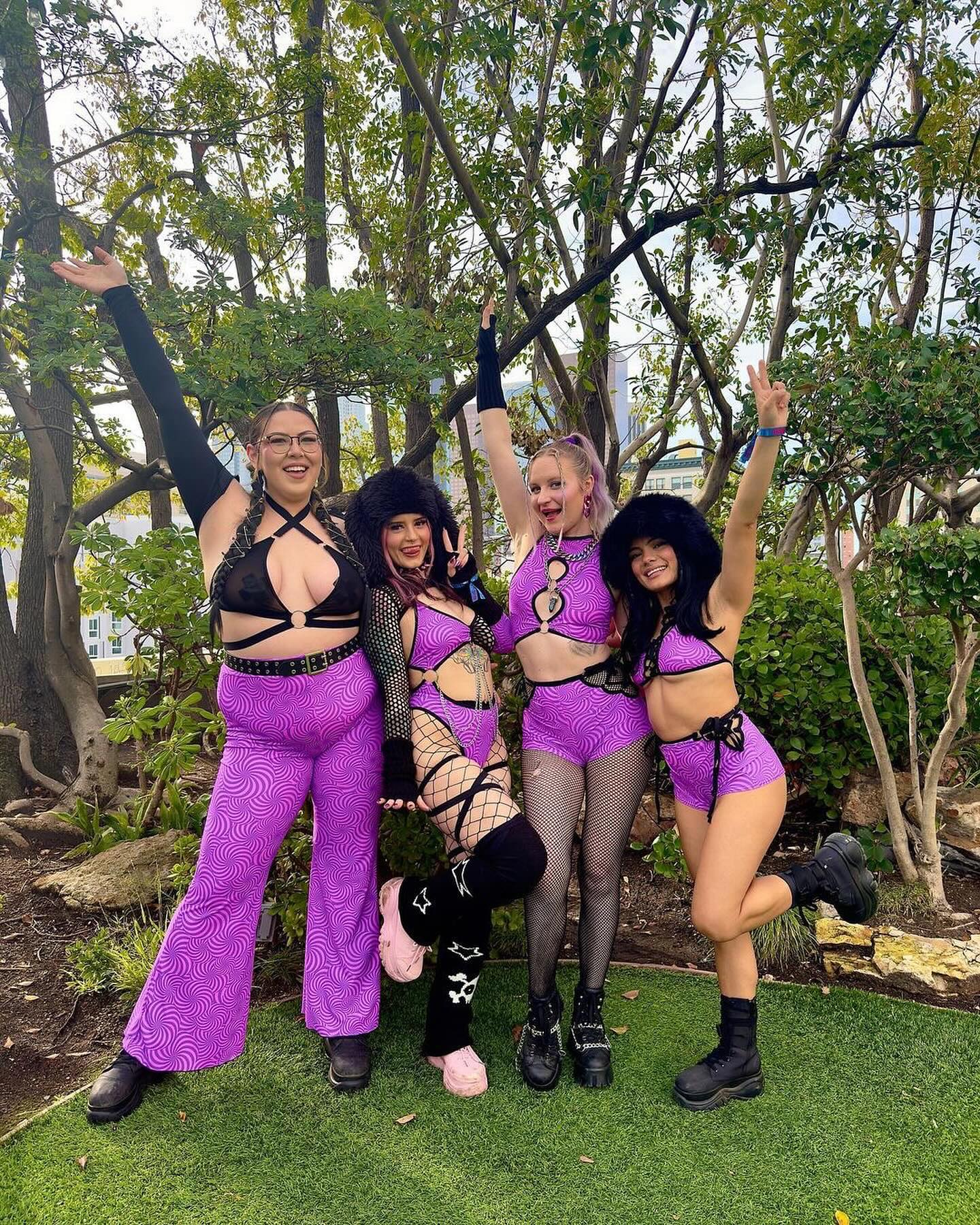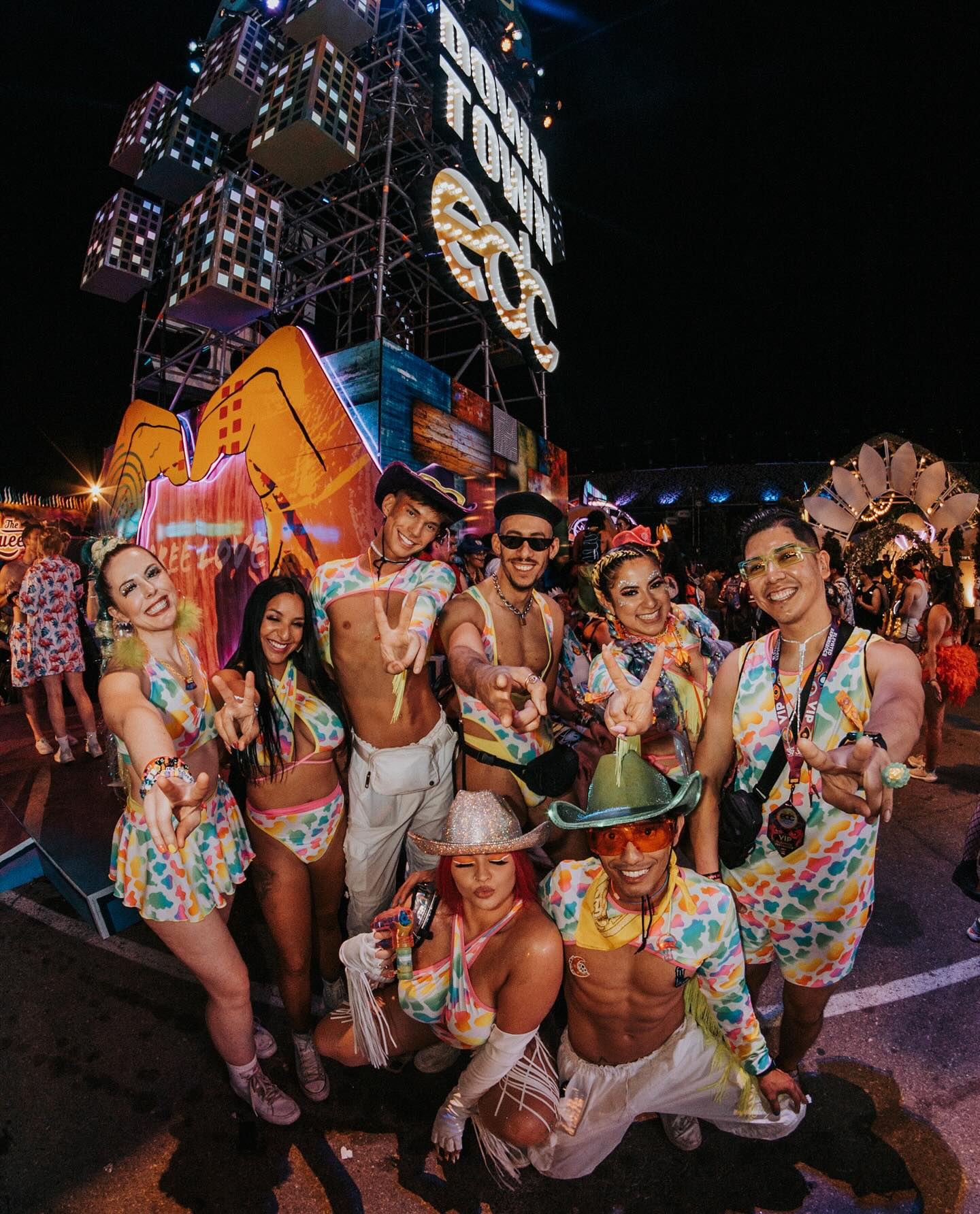There has been a lot of talk about PLUR lately: What it means, where did it come from, and have festivals and raves lost it entirely.
And in today’s world of seemingly larger and larger festivals, PLUR seems to be getting harder and harder to find. Gone are the days of underground raves, frolicking in fields, and warehouses, now replaced by huge stadiums, multi-venue events, and seemingly more and more corporate influence on the scene.
One of the most corporate companies of all, SHEIN (pronounced “she-in”), is now entering the electronic music scene. Once a place to get cheap pasties and mesh pants that were bound to fall apart after a dirty camping festival has now become the largest clothing company in the world.
Breaking new records by doubling its profit to $2 billion in 2023, SHEIN is looking to our festival space and entering a new venture: festival sponsorships.
In the past few months, the international mega-brand has announced partnerships with Breakaway Festival, Creamfields, and a stage at Hangout Festival.
Sponsorships, especially clothing, aren’t new in the music festival space. But such a negatively viewed company entering what used to be a space for meaningful connections, outcasts, and small businesses is something that is causing a stir.
But why does SHEIN entering the festival space feel like the complete antithesis of why we all started raving in the first place?

Anyone who has been on TikTok has seen the dual-sided nature of SHEIN: from influencers doing $1,000 hauls of $5 shirts to environmentalists shaming their fast fashion practices.
Fast fashion is notoriously terrible for the environment with its constant pumping of the latest micro-trends and cheap materials meant to be disposed of after a year max.
But SHEIN’s sheer size has made it one of the largest polluters on the planet. A study from Synthetics Anonymous 2.0 found that “their use of virgin polyester and large consumption of oil churns out the same amount of CO2 as approximately 180 coal-fired power plants.”
The fashion industry alone is already responsible for 10% of all carbon emissions, a statistic that highlights just how important clothing purchases are.
But SHEIN’s environmental impact isn’t the only criticism it’s faced. There have been many reports released by various news outlets claiming the clothing company practices inhumane labor standards including one from Public Eye, Wired, the UK’s Channel 4, and more.
These outlets claim multiple violations like employees working 75-hour shifts, unsafe workshops, a lack of safety protocols like windows and emergency exits, and the equivalent pay of two cents per item of clothing produced.

And while most fast fashion brands are known polluters, it is SHEIN that is directly targeting the festival and rave scene.
A place for creativity, rave styles often push the boundaries. Once a hub of homemade clothing, thrift finds, and hand-me-downs has evolved into a place where small businesses thrive.
It’s not difficult to find a small rave fashion brand that makes your jaw drop with its quality and ingenuity or to see your favorite rave influencer flaunting a custom, cutting-edge design.
But many, many small rave brands have made claims of SHEIN stealing their designs and the list seems to be growing. We’ve heard reports from Tasteful Girls, to Nomad Kandi, to Get Bradified that SHEIN has been stealing their designs, passing them off as their own, and offering rave girlies lower-quality versions of the products they’ve worked so hard to create.
We spoke with Rosa, the owner and creative mind behind rave brand Rolita Couture, about her experience with SHEIN stealing her design.
She said they copied two collections, one she did in 2019 and one from 2022, with the same fabric, color, and design.
Rosa explained, “They’re already huge. Like what else do you wanna do? They see the opportunity with the rave community because we love fashion, we love to dress up and we love to be loud and wear whatever we want. And then they just take advantage of all that.”
And while she was incredibly frustrated, she also felt helpless against the powerful juggernaut that is the biggest clothing retailer in the world.
She said, “I don’t have the money to pay lawyers. I feel like it would be a waste of my time and money because they would probably just remove the item and that’s it. They wouldn’t do anything else.”
She continued, “It’s just frustrating they cost $8. So how much are you paying your employees? How much are you paying for the fabric? My product is human and there’s a human behind the brand. People might complain about prices but everything is made right here right in our office. Like I’m sewing right now. It’s just me and my husband constantly sewing.”
But SHEIN isn’t just stealing profits by out-competing small businesses over price, they’re manipulating their way into a community by stealing from those who understand what makes it special.
The over-the-top dressing but need to feel comfortable, the bodysuits that hug in just the right way to make you feel sexy and confident, the colors and textures that you don’t normally wear in real life.
SHEIN didn’t come up with any of this, they simply saw it from someone else and took it. SHEIN didn’t see rave style as this beautiful form of breaking the mold from society and being the authentic you. They saw a quick buck of people who love to dress up but don’t always have the funds to.

But theft from small businesses happens in all forms of product, from clothing to art to even furniture. What makes SHEIN’s crimes cut so deeply?
It’s the announcement that SHEIN is actively sponsoring electronic-forward festivals like Creamfields, Hangout Fest, and Breakaway.
First off, what even is a festival sponsorship? Sponsorship is a mutual partnership between an event and a company where the company “provides funds in exchange for something of value.”
So while Breakaway may get some money or Hangout gets their full stage covered monetarily, SHEIN gets access to all of these ravers’ eyes and ears.
Yet there’s an important part of sponsorship that matters more than just the money and that’s brand association. By SHEIN being associated with Creamfields, it adds a level of clout to the company that it didn’t previously have by simply being the hub of colorful fishnets and polyester sweaters.
It truly means something when the UK’s largest electronic festival finds a partner in a brand. Creamfields is putting its stamp on SHEIN and saying, “Our festival that has been a staple of music for 25 years in the UK believes this one clothing company is our partner in excellence.”
Think about how it affects you when a brand is associated with your favorite pastime. Beatbox Beverages has made its entire brand identity about being the drink of festivals.
So while SHEIN is getting all of these incredible festivals, and by proxy their performers’, stamp of approval, the festival is reflecting the same type of messaging from SHEIN.
Who SHEIN is matters to the festival audience and festivals have entire PR teams dedicated to finding the right sponsor since it says so much about what they stand for.
So accepting money from SHEIN is a big deal for all of these music festivals.
We asked Breakaway about their partnership with SHEIN and they responded, saying, “Breakaway values each of our partners as well as our loyal community that has supported us over the years. Music and fashion have always had a huge influence on one another, making this partnership a natural fit for us.”
So they, right there, have confirmed that they are so incredibly proud of SHEIN as their sponsor.
They continued, addressing claims of design theft, “SHEIN has assured us that they are committed to empowering self-expression and creativity, and supporting artists across many disciplines through their SHEIN X designer incubator program.”

So we took a look at this incubator program. The incubator is a program that partners with smaller designers, artists, and brands to help scale their businesses.
Claims include partnering with over 3,000 designers and distributing $5.7 million in commission to these partners.
But for a $2 billion company, this amount is approximately 0.285% of their revenue this past year alone. And even more, that’s around $2,000 per designer, giving 0.0001% of their revenue over the course of the program.
We also checked out the designers associated with SHEIN X and found only two designers listed anywhere plus a flawed and poorly produced video competition series.
We spoke with one of the current SHEIN X designers, Patricia de Miranda, who said, “SHEIN’s size and unprecedented format cause discomfort in the competition. It’s quite common for people to say a lot of bad things about SHEIN. I think it is up to us to defend ourselves against any type of unfounded allegation.”
She continued to detail a case of her own designs being stolen from another company who then turned around and accused her own stealing their designs. Patricia’s name was cleared internally and she did not steal the designs, but this writer can see that fact that these small designers are associated with SHEIN seems to negatively impact their own credibility.
But we found a pattern that may indicate where exactly these SHEIN X designers are coming from. Dazed Digital reported that when they reached out to SHEIN previously, they were connected with the SHEIN X 100k Challenge winner Sashagai Ruddock.
This designer partner, according to their article, wrote in a now-deleted Instagram post from 2020 that SHEIN had actually once copied her designs without permission.
This appears to be a common pattern that once a designer finds SHEIN has copied their product, SHEIN reaches out asking for a partnership.
An NPR article claims that designer Krista Perry wrote to SHEIN to express her concern over SHEIN stealing her design only to be offered $500 and later reached out to “contribute to a capsule collection for aspiring artists.”
The designer behind MaisonCléo also experienced a similar situation with SHEIN stealing their designs, asking if they could collaborate, and when they denied, continuing to copy their designs.
And some have even taken to legal methods to stop SHEIN from stealing their product. The company has been hit by many lawsuits alleging copyright infringement and violating the federal Anti-Racketeering Act, RICO.

We reached out to SHEIN to hear why they wanted to enter our very special community and they said, “Music and fashion have always had a huge influence on one another, making music festivals a natural fit for us. At SHEIN, we’re committed to empowering self-expression and creativity, and that’s what these events are all about.”
But our community isn’t just “music festivals.” It’s the place we can dress, act, and connect in ways often shunned by the masses and corporate standards. It’s the place we call home.
But Lexy Silverstein, a sustainable fashion advocate who organizes global protests and is best recognized for sparking a significant protest against the Fashion Institute of Design & Merchandising (FIDM) partnership with SHEIN, echoed our sentiments best, telling us, “Festivals should be a sanctuary from the unethical practices of the corporate world, not a platform for them.”
And with the brand stifling self-expression and creativity by actively stealing from those who are embedded in our community, we can’t help but think SHEIN is just manipulating ravers for another quick buck.







